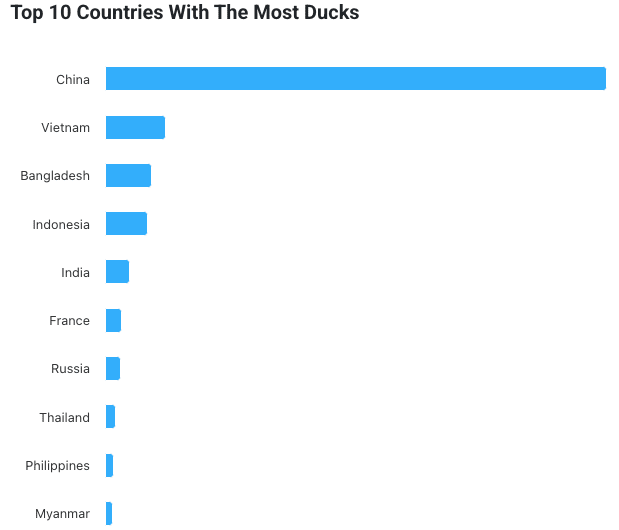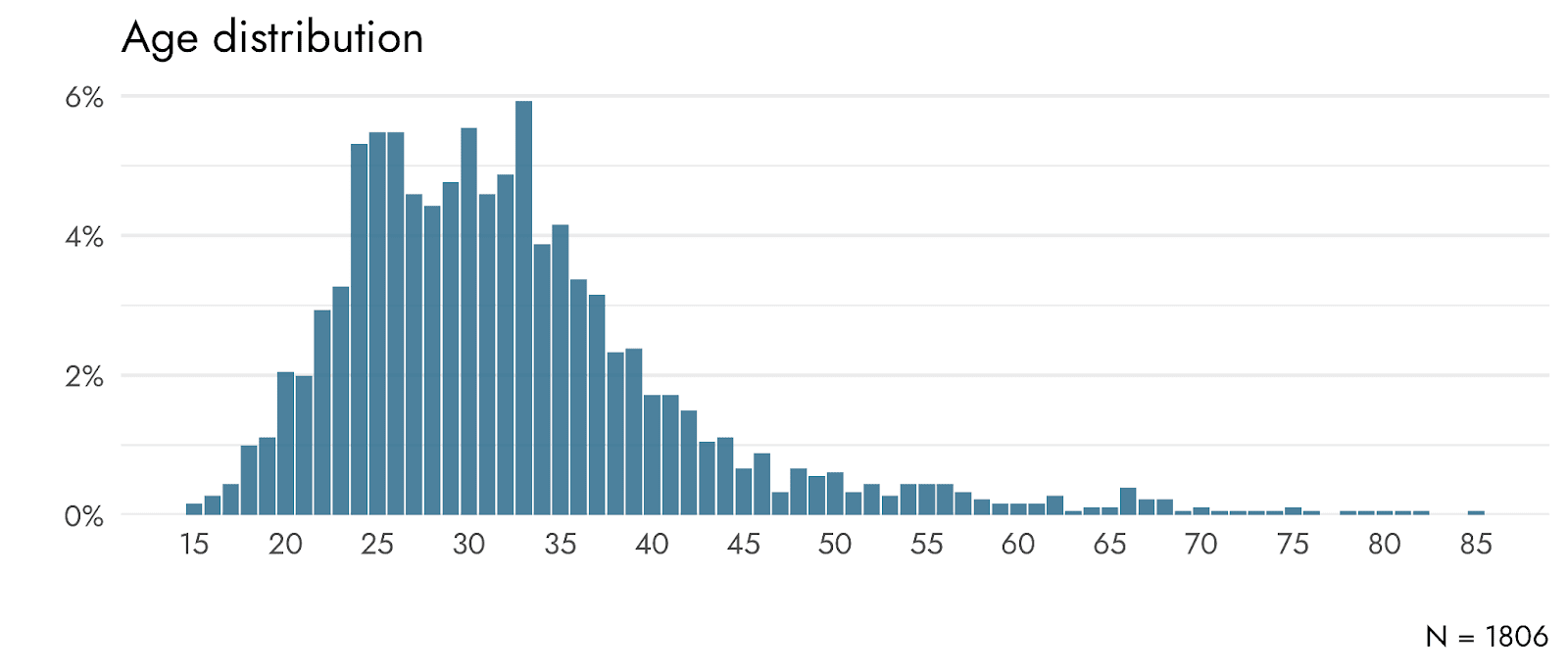All of Julia_Wise🔸's Comments + Replies
I think there are real downsides of mixing unrelated goals (in this case: improving livelihoods/skills for educated people in LMICs, and getting work done).
- remote work requires people who already have computer access, reliable internet, professional skills, and proficient English (or whatever language you need). So these are people who are already relatively well-off in their setting.
management capacity is often a bottleneck, so rather than onboarding people to things like deadlines and quality standards, for the sake of getting the work done efficie
To give an example of where rationalists produced a useful tool here, I found microcovid useful. For example, to convince my father that it was very low-risk for him to resume outdoor social activities.
In cases where there is an established science or academic field or mainstream expert community, the default stance of people in EA should be nearly complete deference to expert opinion, with deference moderately decreasing only when people become properly educated (i.e., via formal education or a process approximating formal education) or credentialed in a subject.
On the other hand, many early critiques of GiveWell were basically "Who are you, with no background in global development or in traditional philanthropy, to think you can provide good charity evaluations?"
I don't have reason to think that prioritizing women's careers is more common in EA than in other similarly educated groups. And within EA, I definitely think it's still most common that women are doing more of the parenting work. But I wanted to highlight some examples to show that multiple configurations really are possible!
Hi Jessica! Some things you might check out if you're not already connected:
- EA Connect, the upcoming virtual conference
- Magnify Mentoring which might have mentors with experience in connecting people in LMICs to areas where AI safety is more established
- The opportunities board, which tends to have more accessible roles than boards aimed at full-time jobs
Many of us have found our goals and desires shift a lot over time. I think there are some commitments flexible enough to be a good idea (like I'm happy I took the 10% pledge), while others lock you in in ways that won't be good for your long-term impact. My own sense of the best ways to have impact has changed a lot over time. This is also true for many others in the community.
Aside from other things that people value after retiring, there are forms of mentorship and contribution that can last long after you're no longer doing a standard workweek. Peter Si...
I think a charity that only existed to do this would have trouble getting charitable status; e.g. I think the Berkeley REACH wasn't able to get approved as a nonprofit because it didn't have a clear enough benefit to society.
There are some projects like this that charities can fund as part of a wider portfolio, e.g. the shorter fellowships Ollie points to, or career development grants. But "3 years of explore whatever seems best to you" sounds like a stretch to me.
Thanks for voicing this!
Some places to connect:
- Magnify Mentoring aims to support people from underrepresented groups in pursuing altruistic work. I suggest checking them out if you haven't already!
- I'm not sure how active it is, but some EAs started a Facebook group EAs from immigrant backgrounds. I know family expectations about what you do with your career and money is a very common theme among people I've talked to among EAs whose families moved from lower-income to higher-income countries.
My husband and I realized that we both likely would have moved to the Bay for work if we weren't married to each other and putting down roots in his home city. There's a lot of benefit we've had from living near his family, and near the folk dance community through which we met - Boston is a hub of that.
We're lucky that one of us was from a city that has turned out to be a pretty good location for EA involvement, and a good location for in-person work in biosecurity. I have a lot of empathy for people who didn't happen to have that as a starting point.
Hey, I'm sorry things have been feeling so bad!
Ultimately, I see the goal of EA as more good experiences and less suffering. When you have a day that's ok instead of awful, when you make music that gives you satisfaction, when you have a good lunch or a good nap or a good experience of any kind, that's a win. You're not just here to create achievements, you're here as a living being whose experiences matter.
I'd echo Dave that talking to somebody (beyond LLMs) seems like a good idea.
If you're not already getting medical/mental health care for depression, I'...
I was in a conversation recently about how organizers usually don't have managers. A board member of a city group said to the organizer of that group, "Should we start having regular calls every few weeks?" and the organizer said "Yes please!"
If you're an organizer with a board, or a board member of a group, consider if you should do regular management or accountability-buddy type calls!
I agree that separating out community posts was not just a reaction to the FTX situation. Early in CEA's time running the Forum, the community section was an entirely different page, as you can see in this 2019 Wayback capture.
Thanks for sharing this warning!
I'm really sorry you've been in such a difficult and painful space. I'm so glad you were able to recognize the way the LLM was pushing you, and step back from that.
For anyone who's struggling and needs a supportive listener, I'd instead suggest a helpline with real people, for example via https://befrienders.org/find-support-now
This is such a hard question! Even the most dedicated altruists make some carveouts, and I don't know of any consistent way that people decide what/how big those carveouts should be.
Some past writing on this:
Friendship as a sacred value
You have more than one goal, and that's fine - as you can probably tell, I've mellowed some since my mid-twenties when I was interviewed in Strangers Drowning.
The relationship between liquor stores being open and crime rates is pretty clear. I don't know how much work has been done on changing hours when alcohol can be sold, but it seems worth exploring as a policy intervention.
Interrupted Time Series Analysis of Bar/Tavern Closing Hours and Violent Crime
Effectiveness of Policies Restricting Hours of Alcohol Sales in Preventing Excessive Alcohol Consumption and Related Harms
Alcohol availability and crime: Lessons from liberalized weekend sales restrictions
Ok, thanks, that does make it easier to follow the argument.
Whatever one's goals, I'd caution against taking quick micromort estimates literally. E.g. I think the "walking on public roads is bad for you" data only includes your risk of getting hit by a car, and doesn't include the health benefits of walking, nor that pedestrian deaths are disproportionately at night and the victims are often intoxicated. Daytime walking while sober is overall good for longevity.
I think this piece could be more effective if it more clearly spells out the relationship between human life expectancy, land use, and invertebrate welfare. E.g. when you say "I estimate it increases the welfare of humans, and soil nematodes, mites, and springtails by 10.5 k QALY/$" I'm having trouble understanding what the relationship is between humans eating a healthier diet and invertebrate welfare.
EAs are a relatively young population, with a lot of years before most will die naturally. From the EA Survey: https://forum.effectivealtruism.org/posts/z4Wxd2dnTqDmFZrej/ea-survey-2024-demographics#Age
Many EAs also believe that this may be "the most important century", and that many pivotal decisions (e.g. around AI) will happen within the next few years or decades rather than being just as influenceable in 2080 or so.
I loved meeting Nick at EAG! I knew he worked on public health in Uganda, but we also chatted about choices he and his wife have made to better fit in with their local community, like spending at a level comparable to the better-off of their Ugandan neighbors rather than more typical expat levels. His energy and positivity wowed me.
[I don't have knowledge of specific charities, sorry.] From a quick search, it seems most such charities focus on the US because the US is the only high income country where most boys are circumsised despite most parents not having a particular religious reason for it. In other countries where it's common, it's typically for religious or epidemiological reasons.
My guess is that change could come from medical angles (Claude thinks it's important that the American Academy of Pediatrics states the benefits outweigh the risks) and from norm-changing in hospita...
My understanding is that these general assemblies work by people literally coming to the same room to vote (even during covid). Willingness to spend a day on this is part of how you screen for who's invested. In a country the size of the US, the time and money costs of travel to any one location would be much greater.
A counter-example of a movement that had a burst of success, then an embarrassing decline, then revived: the early animal welfare movement. From my summary: "Lost steam after an initial burst of fundraising. Office was closed and they met in coffee houses. Main staff member was jailed for the society’s debts, another staff member continued working as a volunteer. Fortune turned when Princess Victoria (later Queen) and her mother decided they liked the organization, became the Royal Society for the Prevention of Cruelty to Animals."
My best guess is that EA didn't really engage much with this, because they never engaged much with starvation relief as an intervention.
The closest thing I can remember is holding up Norman Borlaug as an example of a very impactful career (implicitly in favor of bioengineering food).
A model I think is interesting, though I don't favor it as a good fit for an international field / movement like all of EA: When talking to EA groups in Nordic countries (EA Norway, etc), I was surprised at the extent of membership and elections as the basic means of operating any group there. If I understand right, members pay a fee to be members, and the expectation is that everyone will travel to an in-person annual meeting to vote for various leadership roles. This helps address the question of who's involved enough to get a vote.
Coming from a geograph...
Huh, I didn't realize this. My guess is that this is largely because most animal advocacy projects are based in the West, and most ducks are farmed in Asia. From: https://worldostats.com/animals-wildlife/duck-population-by-country/

Good writeup!
Pathways is another online treatment program. There are also workbooks like The Pain Management Workbook.
Also of interest on this topic: Ansh, a CE-incubated charity on kangaroo care for newborns.
I made a tag for posts about maternal and newborn health.


Vox piece about Foege's work.